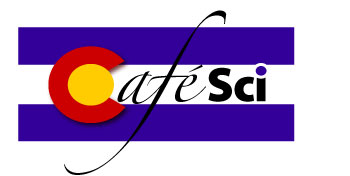Randolph H. Levine is the founding CEO of ZettaCore, a company developing the next generations of semiconductor memory using molecular electronics. He is responsible for building the company from academic concept to commercialization, including two rounds of venture capital financing. He remains an active executive at ZettaCore and is a member of the board of directors. At the time he founded ZettaCore, he was Vice President for Business Development at Clinical Micro Sensors, Inc., a DNA diagnostics company subsequently acquired by Motorola, Inc. Previously, he held senior executive positions at Digital Equipment Corporation. Prior to joining Digital, Dr. Levine spent ten years teaching and doing research in Astrophysics, primarily at Harvard University . Dr. Levine has a B.A. in Physics and Mathematics from the University of California at Berkeley and a Ph.D. in Physics from Harvard University . |
.jpg) |
|
|
The Topic
The best definition of nanotechnology that I know is that nanotechnology is what I do in my lab, not what you do in your lab. This (literally academic) definition tells you the most important thing about nanotechnology today: it's the "in" thing. Will it remain "in"? Will it achieve the potential expected of it? Will it become over-hyped and die off? What is it anyway? Is anything NOT nanotechnology? We'll address all of these questions and answer none of them. What we will accomplish is to focus in on one particular area of nanotechnology -- nano-electronics -- and discuss why, how, and if we will ever see fundamentally new kinds of electronic components.
Background and Suggestions
As background here are some suggestions for reading and thinking:
1. Spend a work day without your cell phone or computer. Imagine not being able to make them cheaper and more functional in the future.
2. Here is a reasonably objective discussion of nanotechnology from a physics perspective, though it focuses a lot on the original Eric Drexler vision of nanotechnology, a vision that even Drexler now admits is very unlikely. http://physicsweb.org/articles/world/17/8/7/1
3. If you want rosy words on nanotechnology from one of its most ardent promoters, try the Forbes Wolfe Nanotech Report, published by Josh Wolfe. It's a combination of the investor and technical perspectives. http://www.forbesinc.com/newsletters/nanotech/
4. In the particular area of nanoelectronics there is always something being reported at nanoelectronicsplanet.com. Not much analysis, but lots of press releases, mostly about academic papers.
www.nanoelectronicsplanet.com
5. Finally, here are links to the company I founded to use molecular electronics to make memory chips, as well as two competing start-ups and HP's molecular electronics lab.
www.zettacore.com
www.nantero.com
www.axontc.com
http://www.hpl.hp.com/research/qsr/
